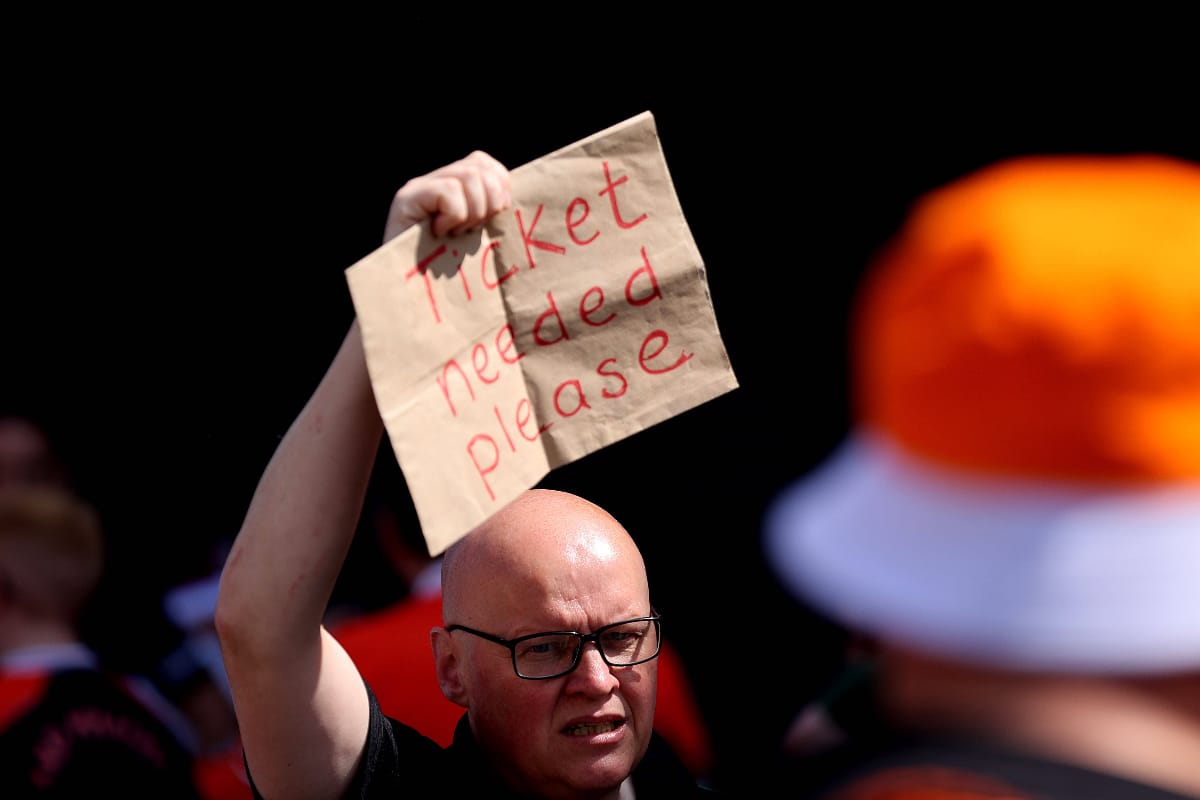Buying football tickets can be a difficult task at times, particularly for the most in-demand matches on the calendar, including Champions League knockout matches and local derbies. The demand through official avenues is often through the roof, with clubs prioritising season ticket holders and members, and governing bodies favouriting sponsors.
As a result, thousands of people often turn to third-party sellers to try and get their match tickets, but these are fraught with danger. Fraudsters have taken over the ticket-selling game in recent years, meaning there are hundreds of football ticket scams currently in operation.
Our guide below will help you learn how to spot football ticket scams and ensure you never purchase a fake ticket.

Football ticket scams: Five ways to spot fraudsters
Poor grammar and punctuation
The biggest red flag with any online scam is when the advertisement is littered with poor spelling, grammar and punctuation. If the ticket advertisement looks like it's been scribbled together by a toddler then it's likely not going to be legitimate.
Unusual account activity
You can often spot a ticket fraudster by taking a quick look at their profile, particularly if they are selling on social media. If they appear to be an account purely dedicated to selling tickets then you should question their legitimacy. A quick scroll through old tweets/posts and searching their name in the search bar could bring up other people warning others about their scamming ways.
Another red flag in terms of account activity is if their account is new. If it appears they have only created the account to try and sell tickets then they are more likely to be a scammer. Most social media platforms list this information on users' profiles.
Be wary of low prices, as well as high
When turning to third-party sellers, you go in with an acceptance that you are going to have to pay more than face value to secure the tickets. Thefore, if someone is offering you tickets on the cheap then question why they would be doing this when they could get a lot more money for them.
On the other hand, tickets that are heavily inflated should also be avoided, regardless of whether you suspect a scam.
Do a reverse image search
For starters, if someone is offering you tickets without a picture of them, assume it's a scam immediately. If they send you a picture of the tickets as ‘proof', you should first put the image through a reverse image search on Google.
Chances are, the same picture will be shown in the results, meaning that the tickets don't belong to the person you are talking to.
Spot red flags in the conversation
Before committing to purchasing a ticket from someone online, engage in a conversation with them to test whether they are legitimate or not. Indicators that you might be getting scammed include:
- The seller becomes pushy – if the match is in demand, then they have no reason to do this.
- The sell asks you to name your price – legitimate sellers will have a fixed price for all their tickets.
- The sellers asks you to pay by bank transfer – ask them to upload the ticket to a reputable third-party website such as Ticketmaster for purchase. Or, alternatively, use PayPal as that also offers some protection.
